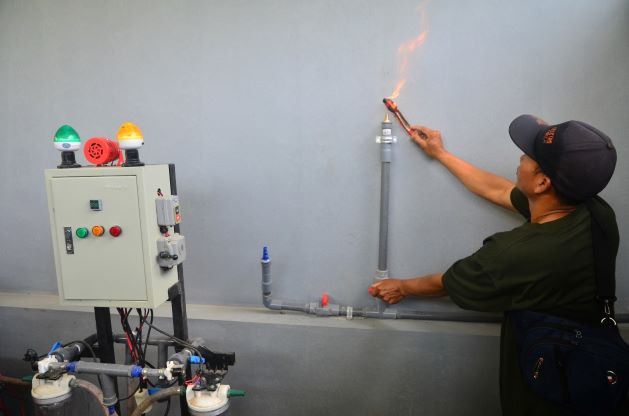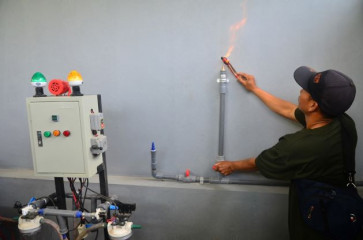Popular Reads
Top Results
Can't find what you're looking for?
View all search resultsPopular Reads
Top Results
Can't find what you're looking for?
View all search resultsHow biomass can solve Indonesia’s energy trilemma
With 60 million people living within a kilometer of state forests who rely on the land for their livelihoods, harnessing biomass technologies can be a solution to Indonesia’s energy trilemma: security, affordability and sustainability.
Change text size
Gift Premium Articles
to Anyone

President Joko “Jokowi” Widodo declared late last month in his 2023 Economic Outlook address that this year would be one of economic resilience and structural transformation. He emphasized transitioning to green energy as a key policy to enhance economic resilience and competitiveness in the long run.
Indeed, with an initial funding commitment of US$20 billion over the next 3-5 years, the Just Energy Transition Partnership (JETP) in Indonesia, which was launched at the Group of 20 Leaders’ Summit in November 2022, will help Indonesia pivot from fossil fuels and simultaneously generate new and green economic opportunities.
The JETP lays out an achievable emissions trajectory for Indonesia. First, it caps power sector emissions at 290 megatons (Mt) of CO2 by 2030, around 19 percent lower than the previously set baseline of 357 Mt. This year also marks the peak of power sector emissions, seven years ahead of schedule, on the way to achieving net zero by 2050, or around 10 years ahead of the previously agreed schedule.
Second, the partnership restricts the development of captive coal plants while seeking to accelerate their retirement so that more renewable energy can power the grid. According to Presidential Regulation No. 112/2022, renewable energy will be possible when it becomes affordable at prices similar to or lower than fossil alternatives and reliable, meaning that it can meet baseload demand.
Opportunities and challenges abound. On the one hand, the JETP can help solve Indonesia’s energy trilemma of security, affordability and sustainability through empowering communities in resource-rich but electricity-poor regions. On the other hand, how can Indonesia deliver on this gargantuan task without sacrificing economic growth, or worse yet, incurring unaffordable debt?
In our view, the biggest obstacle lies in our dependency on coal-fired power plants. We need to somehow replace carbon-intense coal electricity without increasing the cost of electricity generation, which will be passed on to consumers. Relying on energy subsidies to dampen consumer prices are even worse, because it takes away state funding from better use in areas such as education, health services and basic infrastructure that are persistently lacking in these unelectrified areas.
In theory, replacing coal should not be too difficult if it is imported or sourced at market prices. However, resource nationalism implies that coal mined in Indonesia should be used primarily for domestic consumption and, according to one interpretation of sovereignty, need not adhere to global market prices. The government’s domestic market obligation (DMO) policy mandates miners to supply coal to the country’s coal-fired power plants at a fixed price, which is currently below the prevailing global equilibrium.



















